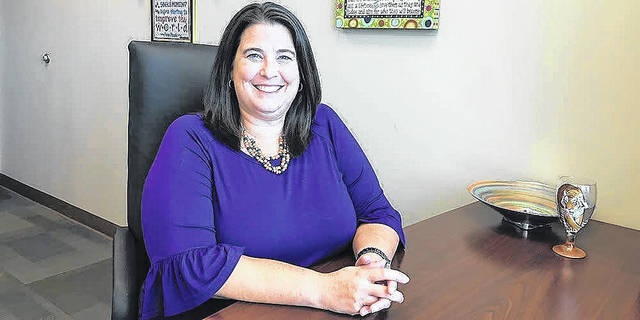EASLEY — Kimber Nelson is known throughout the area as the director of the Little League Senior League World Series, but don’t think because this year’s tournament has been cancelled she’s been idling around … In fact, Nelson has been making a difference another way — by donating plasma as a COVID-19 survivor.
Nelson said her symptoms began March 28, but she wasn’t tested until April 6.
“I thought I just had a sinus infection,” she said during a telephone interview with The Sentinel-Progress. “Week one, I had a headache. And by week two — I just didn’t feel good. I felt rundown, body aches, chills, low-grade fever. But I never had that heavy chest or the shortness of breath.”
But at 9 p.m. on April 7, she was notified by phone her test had come back positive.
“I was worried for my family, but none of them developed symptoms,” she said. “It was scary, but I think my parents were more afraid for me — I eventually had to tell them to stop calling me they were calling so often,” she chuckled.
Nelson said her temperature never got above 100.5 degrees and she wasn’t hospitalized. In fact, she was only tested for the novel coronavirus because she knew she had been in contact with someone who was diagnosed — and her “sinus infection” wasn’t clearing up.
“I guess I wasn’t overly surprised when the results came back positive, but then again, my experience with it just wasn’t what you were hearing about in the news,” she said. “I was so tired, all I wanted to do was sleep. Just … zero energy.”
She did lose her senses of smell and taste, a symptom many recovered patients have reported.
“That was weird,” she said. “And you just don’t want to eat without a sense of taste — you bite in and it’s just … bleh.”
Now fully recovered, Nelson is turning a negative experience into a positive one by donating plasma.
Convalescent plasma is the liquid part of blood that is collected from patients who have recovered from the novel coronavirus disease, COVID-19, caused by the virus SARS-CoV-2.
According to the FDA, COVID-19 patients develop antibodies in the blood against the virus. Antibodies are proteins that might help fight the infection. Convalescent plasma is being investigated for the treatment of COVID-19 because there is no approved treatment for this disease and there is some information that suggests it might help some patients recover from COVID-19.
“I know people are calling it ‘Hero Serum’ but I want to make it very clear that I am not a hero,” she said. “The heroes are the doctors and nurses and all the other healthcare and front-line workers. I just don’t want anyone else to get sick like I did.”
Nelson said she had no way of knowing if her donated plasma has been used to help someone else recover, but she hoped so.
“It wasn’t a difficult process or anything, I think I was there about an hour and a half, with only 30 minutes or so actually in the chair donating,” she said. “It doesn’t hurt — and I’d never even donated blood before!”
Nelson said all that was required of her was a copy of her positive COVID-19 test, and a provider attestation form, which states how long a patient has been symptom free.
In S.C., there are currently four participants who have joined Mayo Clinic’s Expanded Access Program to provide convalescent plasma to patients who are severely suffering from COVID-19: MUSC, Prisma Health, Tidelands Health and Roper-St. Francis.
“If my plasma can help someone else to better fight this disease, why wouldn’t I?” Nelson said. “I just want to help.”
.neFileBlock {
margin-bottom: 20px;
}
.neFileBlock p {
margin: 0px 0px 0px 0px;
}
.neFileBlock .neFile {
border-bottom: 1px dotted #aaa;
padding-bottom: 5px;
padding-top: 10px;
}
.neFileBlock .neCaption {
font-size: 85%;
}


